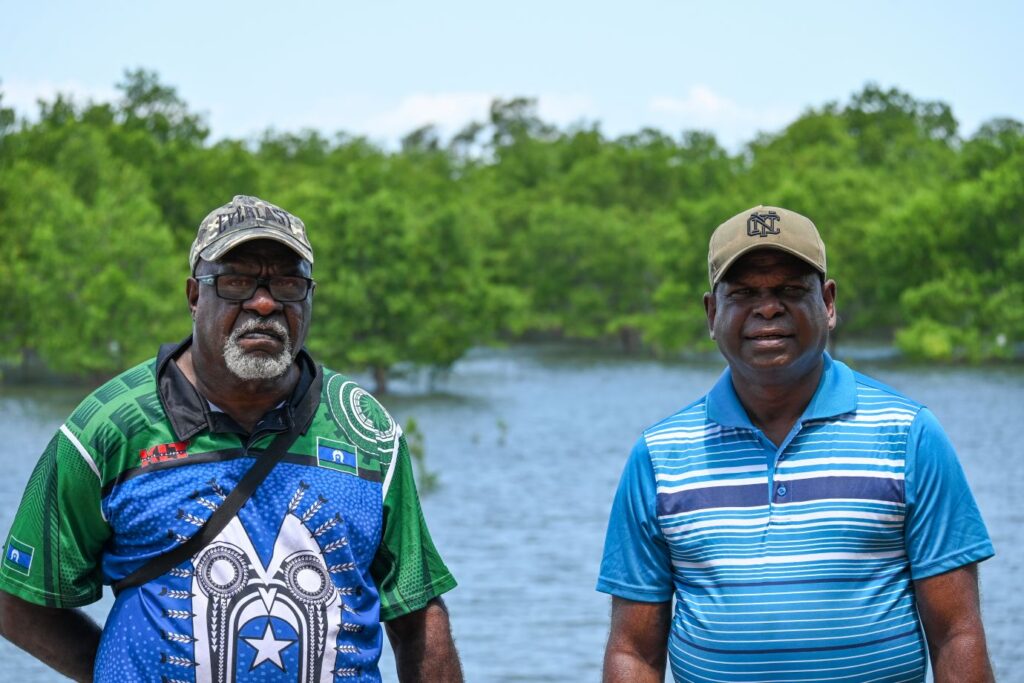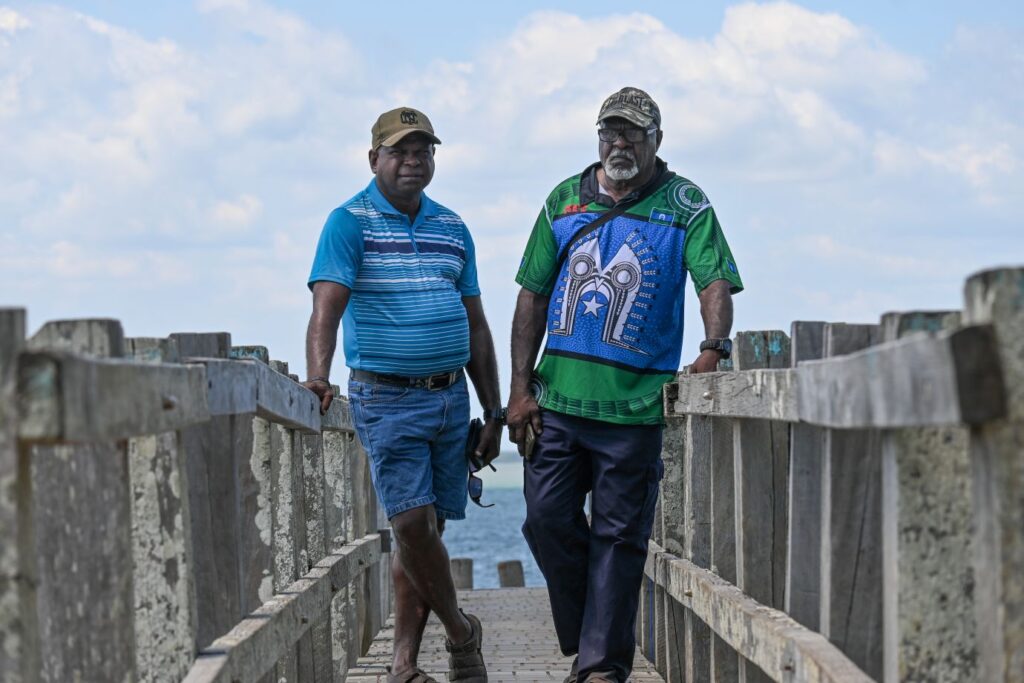The federal court has dismissed a landmark climate change case led by two Torres Strait Traditional Owners, ruling in favour of the Commonwealth government.
Torres Strait Traditional Owners Uncle Paul Kabai and Uncle Pabai Pabai argued the Commonwealth neglected its duty of care to take proper steps to protect their communities from the impacts of climate change.
On Tuesday, Federal Court Justice Michael Wigney delivered a judgment that said the Commonwealth did not, and does not, owe Torres Strait Islanders the duty of care the applicants alleged over climate impacts.
However Justice Wigney also warned that if urgent action is not taken to address climate change, the Torres Strait faces a “bleak future”.
Justice Wigney accepted that the Torres Strait Islands are experiencing adverse impacts from climate change, saying the case did not fail because it lacked merit but rather because negligence law does not allow compensation for matters relating to government policy.
“The reality is that the law in Australia as it currently stands provides no real or effective legal avenue through which individuals and communities like those in the Torres Strait Islands can claim damages or other relief in respect of harm that they claim to have suffered as a result of governmental decisions and conduct which involve matters of high or core government policy,” Justice Wigney said.
“That will remain the case until the law in Australia changes, either by the incremental development or expansion of the common law by appellate courts or by the enactment of legislation.”
“Until then, the only real avenue available to those in the position of the applicants and other Torres Strait Islanders involves public advocacy and protest and ultimately recourse via the ballot box.”
Justice Wigney also rejected claims that cultural loss should be compensated under negligence law.
Speaking after the decision, Uncle Paul Kabai said: “I thought that the decision would be in our favour, and I’m in shock”.
“This pain isn’t just for me, it’s for all people Indigenous and non-Indigenous who have been affected by climate change. What do any of us say to our families now?”
Since 2021, Torres Strait Traditional Owners Uncle Paul Kabai and Uncle Pabai Pabai led the case on behalf of Torres Strait Islander peoples. They argued the Commonwealth has neglected its duty of care to take proper steps to protect their communities from the impacts of climate change.
The court heard evidence the Torres Strait Islander communities on Boigu and Saibai may have less than 30 years before the islands become uninhabitable. They are at extreme risk of becoming Australia’s first climate change refugees.
Uncle Pabai and Uncle Paul, both in their 50s, sought orders from the court that required the government to take steps to prevent this harm to their communities. This included cutting greenhouse gas emissions in line with the best available science.

Currently, the federal government has a 2050 ‘net zero’ emissions target which will not be enough to prevent the destruction of the islands.
Sea levels in the Torres Strait are currently rising at double the rate of the global average. Boigu and Saibai are particularly exposed to sea levels rising as they are low-lying, with communities already being affected. Significant cultural heritage and sacred sites are at risk of being completely destroyed.
The litigation has been financed through the Grata Fund, a specialist non-profit strategic litigation incubator and funder, founded by Isabelle Reinecke.
The case was modelled on a successful climate case in the Netherlands, where more than 800 Dutch people brought a case against their government, claiming it had a legal responsibility to reduce emissions.
More details shortly.
Feature image: Paul Kabai and Pabai Pabai. Photo credit: Talei Elu.



